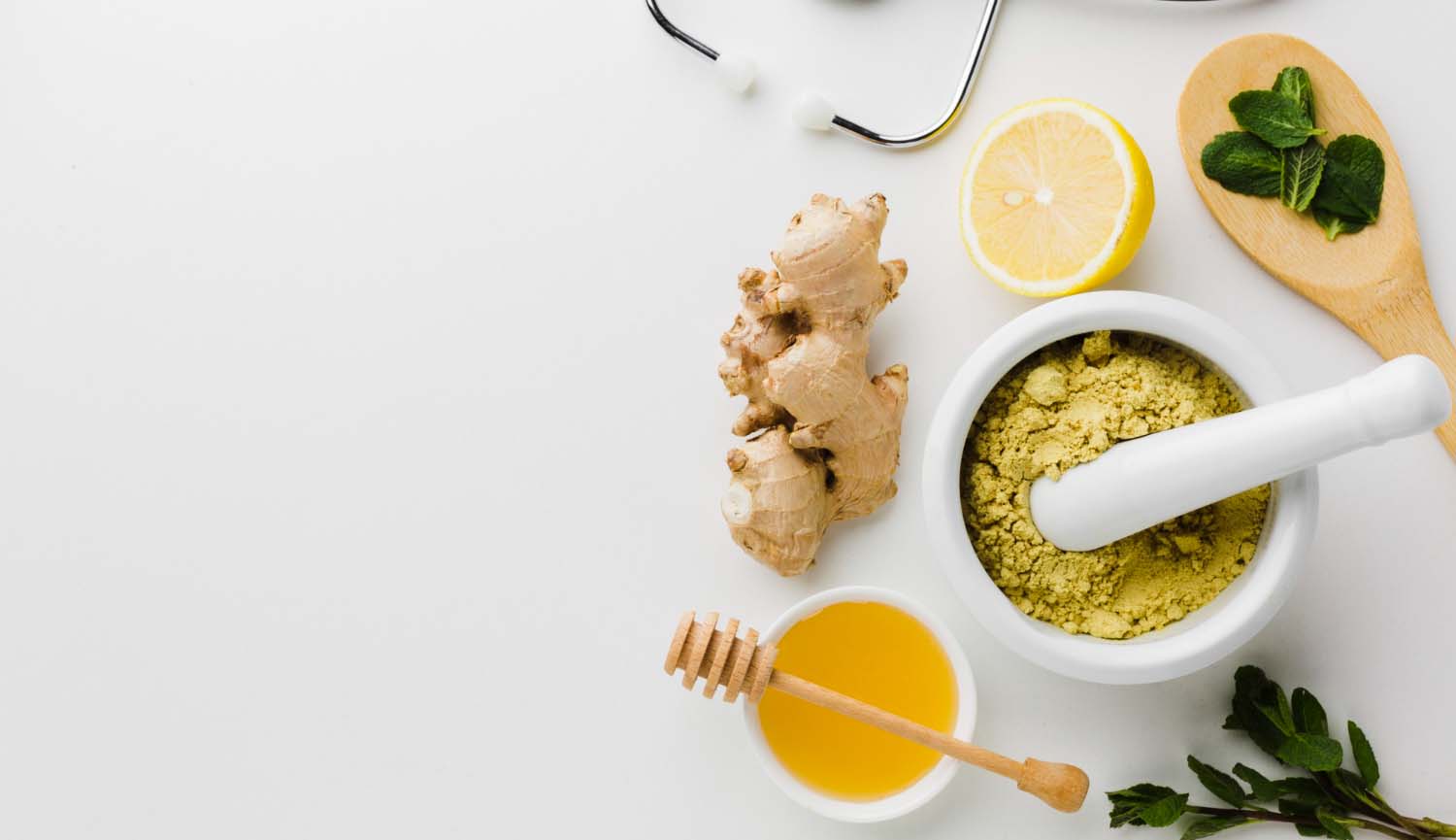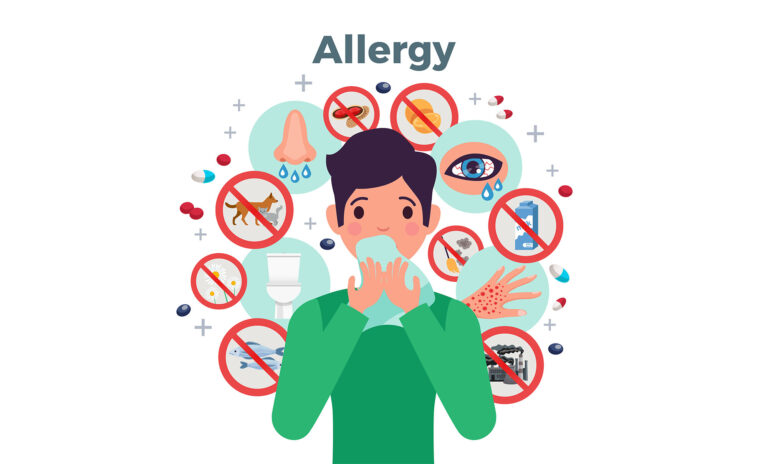As the weather gets colder, the occurrence of cold and flu increases. Cold and flu season is in full swing, and it’s important to know how to protect yourself from common viruses that can cause illness. In this section, we will provide you with essential tips and remedies to help you breeze through the cold and flu season. Learn how to effectively protect yourself from common cold and flu viruses with our expert advice.
Key Takeaways:
- Protect yourself from cold and flu season with our pro tips.
- Discover natural remedies to ease symptoms of cold and flu.
- Learn preventive measures to stay healthy during cold and flu season.
Understanding Cold and Flu Viruses
Before we dive into prevention and remedies, it’s essential to understand the viruses that cause cold and flu.
The Differences Between Cold and Flu Viruses
Although they share similar symptoms, cold and flu viruses are different. The common cold is caused by several types of viruses, primarily the rhinovirus. In contrast, the influenza virus causes the flu. While both viruses affect the respiratory system, flu symptoms tend to be more severe, with a higher risk of complications such as pneumonia.
How Cold and Flu Viruses Spread
Cold and flu viruses are highly contagious and spread through respiratory droplets when an infected person coughs, sneezes, or talks. Touching a surface contaminated with the virus and then touching the face can also transmit the virus. Viruses can survive on surfaces for several hours to days, making it crucial to practice good hand hygiene and disinfect frequently touched surfaces.
Common Symptoms of Cold and Flu
Both cold and flu viruses present similar symptoms, such as coughing, congestion, and a sore throat. However, flu symptoms tend to be more severe and include fever, fatigue, and body aches. Knowing the difference can help in seeking the right treatment.
“The flu vaccine is the best defence against the flu virus, with an effectiveness rate of up to 60%. However, it’s not a guarantee, and taking preventive measures is still essential.”
As you can see, cold and flu viruses are more than just a nuisance. Understanding how they spread and the differences in symptoms can help in taking the necessary precautions to protect yourself and others.
Boosting Your Immune System

Our immune system is our primary defence against harmful microorganisms that cause diseases like cold and flu. It’s essential to keep our immune system strong to fight off infections and maintain good health. Here are some natural ways to boost your immune system:
| Food | Exercise | Lifestyle |
|---|---|---|
| Eat a balanced diet of fruits and vegetables that are rich in vitamins and minerals that support the immune system, such as vitamin C and zinc. | Regular exercise can help increase the production of white blood cells that help fight infections. Aim for at least 30 minutes of moderate-intensity exercise, such as brisk walking, every day. | Get adequate sleep, reduce stress, and avoid smoking and excessive alcohol consumption to maintain a healthy immune system. |
In addition to these lifestyle changes, certain supplements such as echinacea and elderberry can also help boost the immune system. However, it’s essential to speak to your doctor before taking any supplements, especially if you have an underlying medical condition or are taking medication.
It’s important to note that while these lifestyle changes can help boost your immune system, they’re not fool proof. Vaccines are also an effective way to protect yourself from getting sick and are especially recommended for those at high risk of complications from cold and flu.
Preventive Measures to Stay Healthy
Preventing cold and flu is much easier than treating it. By taking these simple preventive measures, you can keep yourself healthy and avoid the misery of being sick.
Practice Good Hand Hygiene
Wash your hands frequently with soap and warm water for at least 20 seconds. If you don’t have access to soap and water, use an alcohol-based hand sanitizer with at least 60% alcohol. Avoid touching your face, especially your nose, mouth, and eyes, as this can transfer the virus to your body.
Avoid Close Contact with Sick Individuals
If someone around you is sick, keep a safe distance from them. Stay at least 6 feet away from sick individuals, and if someone in your household is sick, keep them isolated in a separate room if possible. This will minimize your exposure to the virus and reduce your risk of getting sick.
Maintain a Clean Environment
Regularly clean and disinfect frequently touched surfaces, such as doorknobs, handles, and light switches. If someone in your household is sick, clean their living space and personal items regularly. This will help kill the virus and prevent it from spreading.
Wear a Mask
Wearing a mask, especially in public places or around others who are sick, can help prevent the spread of germs. Make sure to wear the mask correctly by covering your nose and mouth.
Stay Home When You’re Sick
If you’re feeling under the weather, the best thing you can do is stay home. This will prevent you from spreading germs to others and give you time to rest and recover.
By following these preventive measures, you can help protect yourself and those around you from cold and flu viruses. Stay healthy!
Natural Remedies for Cold and Flu Symptoms

When cold and flu symptoms strike, there are plenty of natural remedies you can try to ease your discomfort. Here are a few options to consider:
1. Garlic
Garlic is a natural antiviral and immune booster. Try adding fresh garlic to your meals or taking a garlic supplement to help fight off cold and flu viruses.
2. Hot Tea with Honey
Hot tea with honey can help soothe a sore throat and ease congestion. Add some lemon for an extra boost of vitamin C.
3. Eucalyptus Oil
Eucalyptus oil has natural anti-inflammatory properties and can help relieve nasal congestion. Try adding a few drops to a hot shower or diffuser.
4. Ginger
Ginger is a natural anti-inflammatory and can help ease nausea and vomiting associated with the flu. Try adding fresh ginger to hot water or tea for a soothing drink.
5. Saltwater Gargle
Gargling with salt water can help soothe a sore throat and reduce inflammation. Mix 1/4 to 1/2 teaspoon of salt in a glass of warm water and gargle for 30 seconds.
Remember, natural remedies may not work for everyone. If your symptoms are severe or persistent, it’s always best to consult with a healthcare professional.
Overcoming Cold and Flu: Medical Treatments
If you’re experiencing severe cold and flu symptoms, medical treatments may be necessary to help you feel better. Antiviral medications are an option for those who have the flu, especially if taken within the first 48 hours of infection. These medications can reduce the severity and duration of symptoms. Be sure to speak with your doctor before taking antiviral medication, as it may not be suitable for everyone.
Over-the-counter symptom relievers can also help alleviate cold and flu symptoms. Pain relievers, such as acetaminophen and ibuprofen, can help reduce fever and ease body aches. Decongestants and cough suppressants can help relieve congestion and coughing.
It’s important to note that antibiotics are not effective in treating a cold or the flu, as they only work against bacterial infections. Additionally, antibiotics can lead to antibiotic resistance, which is a growing concern in the medical community.
If your symptoms persist for more than a week or worsen over time, it’s important to seek medical attention. Your doctor can help determine if additional medical treatments, such as prescription medication or hospitalization, are necessary.
Conclusion
In conclusion, it’s crucial to take necessary measures to protect yourself during the cold and flu season. By following the pro tips and remedies mentioned in this article, you can significantly reduce the likelihood of catching a cold or flu.
Stay Informed About Viruses
Understanding the difference between cold and flu viruses, their symptoms, and how they spread can help you take preventive measures effectively. Make sure to stay informed about the latest guidelines from health professionals and authorities.
Boost Your Immune System
A strong immune system is the first line of defence against cold and flu viruses. Incorporate healthy habits into your daily routine to help keep your immune system in top shape.
Take Preventive Measures
Preventive measures such as frequent hand washing, avoiding contact with sick individuals, and keeping your environment clean can reduce the risk of catching a cold or flu.
Explore Natural Remedies
Natural remedies can provide relief from cold and flu symptoms without the side effects of medication. From herbal teas to essential oils, explore different options to find what works best for you.
Consider Medical Treatments
In severe cases, medical treatments such as antiviral medications may be necessary. Speak to your healthcare provider if you experience severe symptoms or have underlying health conditions.
By taking the necessary precautions and utilizing the remedies and treatments mentioned in this article, you can overcome the cold and flu season with ease. Remember to prioritize your health and well-being and stay safe!
FAQ
What are some pro tips to beat cold and flu season?
Some pro tips to beat cold and flu season include practicing good hand hygiene, getting vaccinated, avoiding close contact with sick individuals, and maintaining a healthy lifestyle.
What is the difference between a cold and the flu?
A cold is usually milder than the flu and typically affects the nose and throat. The flu, on the other hand, can cause more severe symptoms such as high fever, body aches, and fatigue.
How do cold and flu viruses spread?
Cold and flu viruses spread through respiratory droplets when an infected person coughs, sneezes, or talks. They can also spread by touching contaminated surfaces and then touching your face.
What are some common symptoms of cold and flu?
Common symptoms of cold and flu include runny or stuffy nose, sore throat, cough, sneezing, headache, and fever. The flu can also cause body aches and fatigue.
How can I boost my immune system?
You can boost your immune system naturally by eating a balanced diet rich in fruits, vegetables, and whole grains, exercising regularly, getting enough sleep, managing stress, and avoiding smoking and excessive alcohol consumption.
What preventive measures can I take to stay healthy during cold and flu season?
You can stay healthy during cold and flu season by practicing good hand hygiene, avoiding close contact with sick individuals, covering your mouth and nose when coughing or sneezing, disinfecting frequently touched surfaces, and staying home when you’re feeling unwell.
What are some natural remedies for cold and flu symptoms?
Some natural remedies for cold and flu symptoms include drinking plenty of fluids, using saline nasal sprays, gargling with warm saltwater, using honey to soothe a sore throat, and using steam or humidifiers to ease congestion.
When should I seek medical attention for cold and flu?
You should seek medical attention for cold and flu if you experience severe symptoms such as persistent high fever, difficulty breathing, chest pain, confusion, or worsening symptoms after a period of improvement.
What medical treatments are available for cold and flu?
Medical treatments for cold and flu include antiviral medications, over-the-counter symptom relievers such as pain relievers and decongestants, and in some cases, prescription medications to manage severe symptoms or complications.



Beating Cold and Flu Season: Pro Tips & Remedies